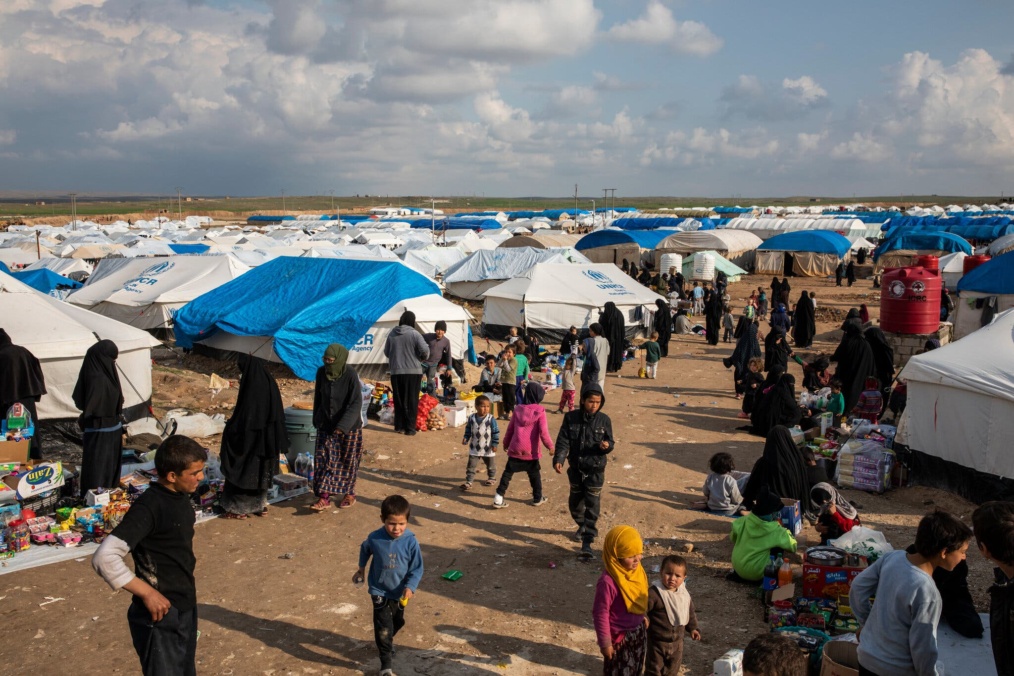
The Repatriation of European Women and Children
In 2019 there was a major incident of the capture of women and children possibly linked to ISIS. Approximately 1,000 women and children from Europe were imprisoned in camps in northeastern Syria, occurring after the crisis with ISIS.
Major Obstacles for the Repatriation of Children in EU
Diplomatic roadblocks created challenges for Europe to repatriate children. There were countless European and global efforts to resolve the problem of repatriations. However, continued refusals to repatriate children stemmed from legal excuses.
Unfortunately, the inability for the children to identify themselves as European citizens was another crucial obstacle they faced. It was infeasible to prove their identification, especially under the barbaric and inhumane conditions in the detention camps. This resulted in an urgent call for help for the children to the European states in order to provide a practical solution to the nonexistent legal and identification documents so that they could return home.
European Security Endangered by ISIS
Former members of ISIS and their families detained in camps and prisons in northeastern Syria mean “a ticking bomb” for European security, the EU’s new counter-terrorism chief reported recently. Ilkka Salmi, the new counter-terrorism coordinator, provided for the first time at the European Parliament’s Subcommittee on Security and Defense a detailed speech related to the most concerning threats in Europe. Salmi pointed out that in order to improve the humanitarian situation, the EU must support Syrian and Iraqi refugee camp residents to reintegrate into local communities.
Also, Salami emphasized that the consequences of the Taliban takeover in Afghanistan led to the conclusion that the EU had to prevent the infiltration of terrorists “through the development of a common procedure for systematic and timely security checks of biographical data, for instance, against all the relevant EU and internal databases.” Salmi also warned that they “might have a not insignificant number of Afghans” evacuated by the U.S. and now waiting in Kosovo, who could pose security concerns for the EU.
According to sources and recent events, jihadist terrorism constitutes the greatest threat to Europe. The Islamic State looks for Europeans to join them in developing future attacks. Overall, more attacks were reported in 2020 than in 2019. Ten attacks occurred in 2020, resulting in 12 deaths and traumatizing nearly 47 people. In addition, lone-actor-jihadist terrorists, often linked with larger terrorist groups, have organized several attacks over the last seven years.
The Repatriation of Children and Women in 2021
On October 28, 2021, the United Kingdom repatriated three British children from detention camps in northeast Syria, according to Rights & Security International (RSI). Although the repatriation of the children was highly important, RSI demanded to have a more organized plan for the return of all the British children, their parents, and their caregivers.
Sweden is one of the highest-ranked countries in Europe for individuals participating in ISIS. The beginning of the repatriation process resulted in confusion and panic as several Swedish relatives searched to bring their relatives home. The Kurdish government organized a solution by bringing everyone back to their roots. However, it was a temporary relief and has not been repeated since.
Throughout 2021, Belgium and Finland repatriated children via organized methods. Since then, Russia, Uzbekistan, and Kosovo have also completed a safe return for women and children previously held in the Syrian camps.
Germany has returned eight women and 23 children from a camp in northern Syria who participated in the Islamic State. According to German officials, they were brought back in a joint operation with Denmark, in which three women and 14 children were returned.
Most of the European members of the Islamic State were usually held in Kurdish camps in northern Syria. In March 2019, most of the European Islamic State members were exiled in Kurdish camps since the fall of ISIS. Overall, the German Foreign Ministry announced in October that women and children had arrived at Frankfurt Airport from the Roy Prison Camp in northeastern Syria.
After approximately two years of indifference to the circumstances in the repatriation of children and women in Syria, the time has come for the European states to take drastic measures in order to process their repatriation.
Katerina Rebecca Paraskeva, Counter-Terrorism Research Fellow
